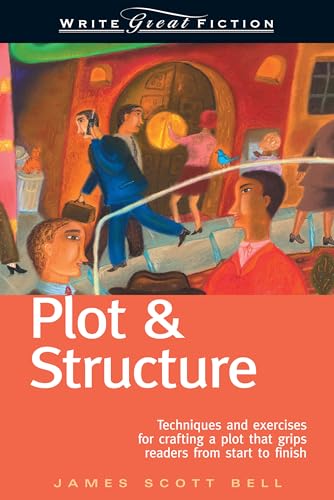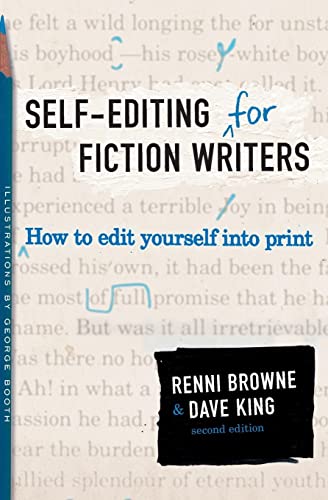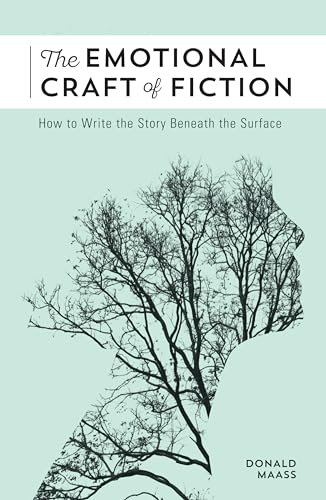With so many books on people’s bookshelves, you might think writing a best-selling novel is easy. But even the most creative people struggle to generate ideas or find structuring a story difficult.
Defining yourself as a writer may be even more challenging, even if you have a unique idea.
 Reading is one of the most important things you can do to improve your writing skills.
Reading is one of the most important things you can do to improve your writing skills.
As a writer, you probably already read more than the average person. Expanding your horizons by reading books about writing will help you build the skills needed to write a best-selling book.
These books on the art of writing explain in intimate detail what it means to be a writer. These writing books cover everything from grammatical standards to publishing guidance to personal experiences.
These are some of the best books ever written about how to write a book, filled with insights and lessons that can help you at every level of the writing process.
Disclosure: This page contains affiliate links, which means I receive a small commission if you purchase using the links.
The Anatomy of Story: 22 Steps to Becoming a Master Storyteller
“The Anatomy of Story” by John Truby is my new favorite book. It’s also an invaluable resource for aspiring writers in the film industry. Truby, one of the most respected story consultants, shares his wealth of knowledge and secrets for crafting compelling scripts. Drawing on philosophy, mythology, and his unique approach, Truby offers fresh techniques and insightful anecdotes to help readers build compelling and multifaceted narratives.
But Truby’s expertise doesn’t stop at writing. As the founder and director of Truby’s Writers Studio, he has taught and mentored countless students, including novelists, screenwriters, and TV writers, who have collectively generated over fifteen billion dollars at the box office. Truby’s impact also extends beyond the classroom, with his genre techniques being applied in story consulting for major studios like Disney, Sony Pictures, and HBO.
Whether you’re a seasoned writer or just starting out, “The Anatomy of Story” is a must-read that will inspire and elevate your storytelling skills.
The Forest For The Trees (Revised and Updated) By Betsy Lerner
The publishing house might feel like a jungle to authors who have already established themselves and those who are just starting. Fortunately, Betsy Lerner is here to guide you through it all.
In this book, Betsy Lerner uses her rich collection of experiences that she has gained as an editor to give you the very best advice on navigating the publishing world.
The motivational book “The Forest for the Trees” inspires authors by helping them overcome their fear of the unknown.
It has less to do with taming the wild and more to do with battling the demons of self-doubt and worry that reside in each person’s psyche.
Sin And Syntax By Constance Hale
Constance Hale, a professional copywriter, wrote this book to broaden people’s access to creative communication in all forms, including the poetic and the illicit.
Sin and Syntax have a sharp and witty tone, and it covers the ground rules of grammar while also revealing many strange syntax secrets that make for sinfully good writing.
Some examples of these unconventional syntax secrets include how to use exclamations and when to pepper your prose with slang to make the writing more believable and realistic.
Bird By Bird By Anne Lamott
An already-established author writes this book, so you are getting the best advice from someone with a plethora of experience.
Anne Lamott has written seven novels and nine works of nonfiction, many of which have become bestsellers in their respective genres.
Bird by Bird is Anne Lamott’s book about the craft of writing, which was published in 1994.
In it, she discusses how to get started writing, how to accept the shittiness of a first draft, how to work in groups, how to overcome writer’s block, and how to determine when you are finished.
The value of her words, counsel, and understanding cannot be overstated, and this book is considered a must-read for any would-be writer.
Writing Better Lyrics By Pat Pattison
Not all writing has to do with books; songwriting is also a popular creative outlet for writers.
Writing Better Lyrics has been an indispensable resource for songwriters for over twenty years.
This redesigned and updated second edition offers valuable tools for a wide range of songwriting tasks, including idea generation, comprehension of a song’s structure and purpose, and lyric fine-tuning.
Story Genius By Lisa Cron
Creativity is necessary for most of the writing process. But you might be surprised that you can apply science to your writing to make your book even more appealing to the masses.
Story coach Lisa Cron examines the role that cognitive storytelling tactics can play in writing and how you can put those strategies to work in your writing.
Dreyer’s English By Benjamin Dreyer
Dreyer, who holds the position of copy chief at Random House, has been responsible for upholding the standards of the illustrious publisher for more than twenty years.
Deconstructing the English language while maintaining a lighthearted tone has earned him the adoration of authors and editors alike, not to mention the admiration of his fans on social media.
Now, Dreyer condenses all he has learned from the numerous works he has copyedited and supervised into a helpful guide that is not only for writers but for anyone who wants to put their best prose foot forward in whatever they write.
The Elements of Style Illustrated Co-Authored By E. B. White And William Strunk Jr.
The book The Elements of Style by William Strunk and E.B. White is so well known that we are confident you already own a copy.
This book is the only style guide that has ever appeared on a bestseller list, and it should be your go-to resource if you feel like the clarity in your writing needs a boost. In addition, Maira Kalman’s illustrations, which are included in this specific version, provide an air of sophistication and excitement to the time-honored work.
Naked, Drunk, And Writing By Adair Lara
Any memoirist or personal essayist should make it a point to read Adair Lara’s Naked, Drunk, and Writing.
Lara’s knowledge, which she has gained through her work as a teacher, editor, and, of course, writer, will assist readers in resolving issues such as how to deal with your family after they have read your work and how to locate an agent who will fight for you.
This book by Lara is invaluable for anyone who needs help expressing their tale since it contains the ideal combination of harsh love, humorous relief, and passion.
Poemcrazy By Susan G. Wooldridge
While it seems that some people can pull epic poems out of thin air, a lot of people need guidance in this writing style.
Susan G. Wooldridge, a writing workshop leader, compiled this collection of writing prompts, ideas, and other materials. Wooldridge draws from her own experience as a writer and a writing teacher.
Poemcrazy is a manual that any aspiring poet will discover as an invaluable resource.
Walking on Water By Madeleine L’Engle
Madeleine L’Engle is a true expert in incorporating religious themes and concepts into her works of fiction.
In her book Walking on Water, the late author examines what it means to be a Christian artist. She also discusses the influence of science in her writing.
Because it explores the thought process of one of the most gifted authors of the 20th century, this book will genuinely appeal to readers and other writers.
On Writing By Stephen King
Even readers who steer clear of Stephen King’s more well-known works of gory horror may find plenty to like in this classic that serves as both a memoir and a guidebook.
In this book, Stephen King explains how he became the writer we know today and provides the reader with the fundamental writing skills that any would-be writer requires.
Writer’s Market By Robert Lee Brewer (100th Edition)
Writer’s Market is a resource that helps budding authors in finding publications.
Its lists contain hundreds of pages worth of proposed marketplaces for nonfiction authors and those who want to sell short tales, giving specifics on pitching your work to potential buyers.
Because this book is updated regularly, you will always have access to the most recent information on publishing your writing and getting paid for it.
The Elements of Style By E.B. White And William Strunk Jr.
Writing instructors have been giving their students “The Elements of Style” as a homework assignment for many years to educate them on grammar, structural writing standards, and the principles of composition.
It is essential to periodically review the fundamentals to maintain a steady progression of your abilities, and this book is full of straightforward advice that every writer should be familiar with.
How To Write Bestselling Fiction By Dean Koontz
The prolific novelist Dean Koontz, who has sold more than 450 million copies of his books, is the most competent person to instruct others on how to write successful fiction in the marketplace.
Because this book was written in 1981 and is no longer in print, purchasing it online means getting a collector’s item.
Nevertheless, authors fortunate enough to obtain a copy of the book will gain access to ageless and priceless wisdom on writing fiction. Even after forty years, it remains one of the best books ever written.
Plot & Structure By James Scott Bell
This book is geared toward fiction writers and covers a wide range of topics, including story construction models and procedures and various tactics that will assist you in writing fantastic stories from beginning to end.
You’ll even discover instructions on how to draw plot diagrams and the tools you need to solve the many plot complications that can crop up.
I Should Be Writing: A Writer’s Workshop By Mur Lafferty
This book is like having your personal writing workshop packed into a journal.
Writing exercises, writer’s prompts, and ideas on how to develop your creative process and hone your craft are all included in this book by Lafferty. These exercises will help your writing flourish and become stronger.
The most important thing you’ll learn is to ignore the writing bully inside you.
Self-Editing For Fiction Writers By Renni Browne And Dave King
Use this book if you can’t afford to pay a professional editor to make sure your manuscript is ready for printing, as it will teach you how to edit it yourself and get it published.
Self-Editing for Fiction Writers is a book that two professional editors wrote to teach editing skills like dialogue, exposition, point of view, and more. This book allows writers to turn their works-in-progress into published novels and short stories.
The Artist’s Way By Julia Cameron
Julia Cameron is aware that all writers, at some point or another, experience exhaustion in their writing or a block in their creative process.
Her book focuses on teaching readers how to hone their writing skills and become even more creative through practice.
Cameron provides helpful strategies, such as beginning each morning with a free-writing practice and devoting one weekday to investigating a topic that you find particularly fascinating.
Any writer could benefit from their advice on how to boost their self-confidence and rekindle their creative spirit.
A Writer’s Guide To Persistence By Jordan Rosenfeld
This book offers advice on maintaining a happy and successful writing profession throughout your whole working life. It discusses everything from finding joy in your writing career to avoiding burnout.
It also teaches you how to balance your everyday life and obligations with your love of writing so you have time to do everything.
In addition to that, it delves into topics such as honing your craft, getting in touch with your creative flow, revising your work, learning how to be resilient, and finding feedback.
Steal Like An Artist By Austin Kleon
The book “Steal Like an Artist: 10 Things Nobody Told You About Being Creative” will help you realize that there is no such thing as an original idea.
Read this book to be inspired by Kleon’s transforming insights into the power of accepting influence. Then, you’ll be on your way to discovering your proper artistic side and building a more creative life.
This reading will instill the confidence to write what you want and be innovative rather than writing about what you already know.
The Paris Review Interviews By Philip Gourevitch
The Paris Review is a prestigious publication that features sixteen in-depth interviews with some of the most prominent personalities in the world of literature, ranging from novelists and playwrights to poets and poet laureates.
If you want to understand how renowned authors such as Toni Morrison, Kurt Vonnegut, T.S. Eliot, and Ernest Hemingway produced their celebrated works, check out this book.
The Lonely Voice: A Study of the Short Story By Frank O’Connor
In this well-loved book on writing, Irish novelist Frank O’Connor, known worldwide, discusses the short tale.
Although short stories are challenging to write, O’Connor provides advice and strategies that can assist any writer in becoming more self-assured about their ability to master the art and create original works.
According to many people who read and write short stories, this is one of the best books on writing short tales.
The Emotional Craft of Fiction By Donald Maass
According to this book written by Donald Maass, readers shouldn’t only read your story; instead, they should also experience it. This is what distinguishes good fiction from poor fiction.
Maass, a former literary agent, dissects the components of a story to show how to compose fiction that elicits an emotional response from the reader.
Writer For Hire: 101 Secrets to Freelance Success By Kelly James-Enger
Consisting of five distinct parts, this book by James-Enger delves into important subjects such as when it is appropriate to disregard per-word prices, how to ask for extra money, how to create goals, and even how to terminate relationships with difficult customers or clients.
If you want to develop a sustainable career as a full-time freelance writer, this book is an excellent resource that you should read with full attention.
Summary
Writing can often be long and arduous, even for the most creative person. From coming up with the initial idea to writing and structuring a story, all the way to navigating publication, there is far more that goes into writing a book that first meets the eye.
If you are interested in starting writing as a hobby or are currently writing a book or short story, reading the above works can give you some helpful tips and tricks.



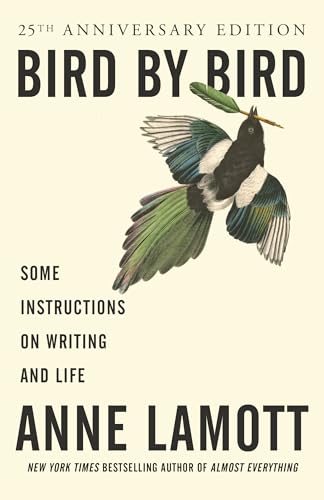

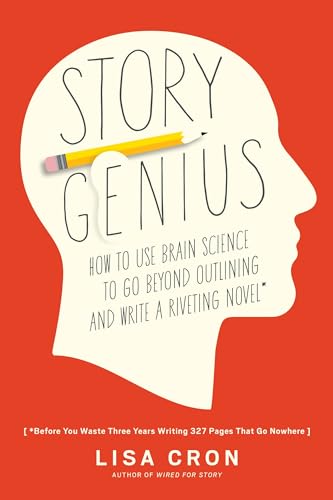

![The Elements of Style [Illustrated]](https://m.media-amazon.com/images/I/41rpf7dyrEL.jpg)







